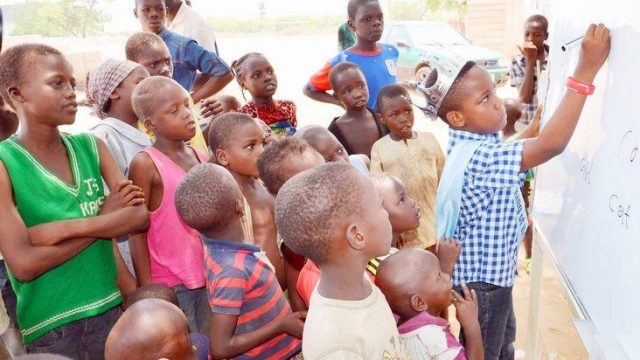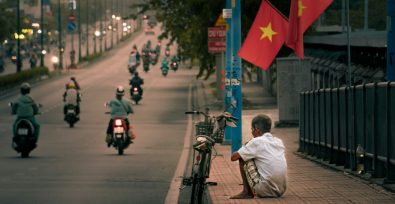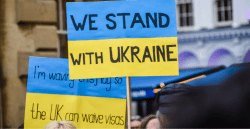The Nigerian government in Kaduna State is deeply concerned about foreigners allegedly buying children from orphanages to traffick them out of the country.
Last year the state high court released three children to a Ghanaian man accused by the state government of buying the children for N1.1 million. State Commissioner for Women Affairs and Social Development, Hafsat Baba, said she is worried the state is becoming a haven for child traffickers.
The Premium Times spoke to Baba on about the details of the Ghanaian case:
Mrs. Baba said: “Yes, a Ghanaian came in August last year with children to make papers for the children but during documentation we discovered he bought the children at a private clinic in Zaria to the tune of N1.1 million.”
“He bought two boys at N350,000 each and a female child for N400,000. When we realised that, we informed the police and effect arrest and took the children away from him.
“But when the case came up at the High Court they asked us to come with the children which we did. The judge actually saw them but to our shock and dismay, this woman, Justice Hannatu Balogun, ruled against the government in favour of the Ghanaian man that trafficked these children.”
“She instructed that we should immediately hand over the children to this man right there at the court premises. This is a case where the man himself wrote that he bought the children.”
She added that she had contacted the National Agency for Prohibition of Trafficking in Persons (NAPTIP) about the case but unfortunately does not know where the allegedly trafficked children ended up after being handed over to the Ghanaian man.
“We are only fighting to protect the children. But with that kind of judgment, it means people can come to Kaduna and buy children at will and take them anywhere,” Baba said.
In response to this case, Baba says the state government has “Mapped out all orphanage homes in Kaduna to see how they operate and developed a framework on how to manage orphanage homes. The Ministry of Women Affairs has the mandate to monitor orphanage homes and we will sanction those found wanting.”







Freedom United is interested in hearing from our community and welcomes relevant, informed comments, advice, and insights that advance the conversation around our campaigns and advocacy. We value inclusivity and respect within our community. To be approved, your comments should be civil.
What chance do these children have when the judicial system is stacked against them. If the state commissioner has no authority there is very little hope of improvement in the system.
Unbelievable that you can “buy” a human child as a commodity. It sharks back to slavery, where Africans were sold often by their own people, to slave traders, and taken west to America etc to work on plantations. Have we learnt nothing as a civilization in three centuries!
Such disrespect and shameful these countries cannot or have no desire to protect these innocent children from these atrocities. So shocking.
Poor children, who knows where they will end up and how long they survive though you hope that some go to good homes where they are loved?
Kaduna State is an area that sent slaves both north and south. Young girls and castrated boys were sent north through the port of Bengazi for distribution through the Muslim world. Women and able-bodied men were sent south for shipment to the Americas, primarily to South America and the Caribbean.